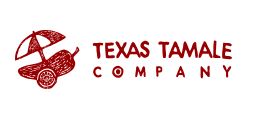TIL: “Texas Tamale” Is an Enforceable Trademark–Texas Tamale v. CPUSA2
This case hit my alerts because of its discussion about keyword advertising, but first, I have to digest how the court got there.
[Reminder: per Wikipedia, a tamale “is a traditional Mesoamerican dish made of masa, a dough made from nixtamalized corn, which is steamed in a corn husk or banana leaves” and then stuffed with a wide range of fillings. Yum, and easily veganized. We usually get ours at the local farmers market.]
In an April 2023 summary judgment ruling, the plaintiff established that it “possesses the legally protectable, incontestable trademarks TEXAS TAMALE and TEXAS TAMALE COMPANY.” Say what?
 The court said that the trademark owner had been using the trademark since 1985 and registered the trademark in 2006. I haven’t taken the time to review the file, but the first place I’d turn would be the evidence supporting that the trademark owner had established sufficient secondary meaning for the term “Texas Tamale.” To me, this sounds like saying someone obtained a protectable trademark for “California Burrito” or “Arizona Taco”–possible in theory, I guess, but dubious in practice.
The court said that the trademark owner had been using the trademark since 1985 and registered the trademark in 2006. I haven’t taken the time to review the file, but the first place I’d turn would be the evidence supporting that the trademark owner had established sufficient secondary meaning for the term “Texas Tamale.” To me, this sounds like saying someone obtained a protectable trademark for “California Burrito” or “Arizona Taco”–possible in theory, I guess, but dubious in practice.
In 2014, the defendant launched a website called “The Texas Tamales Warehouse” but was driven off of that. In 2020, the plaintiff learned that “Defendant was using Plaintiff’s Marks in online tamale advertisements and in Google AdWords, which placed Defendant’s products above Plaintiff’s products in search results for the phrase ‘Texas Tamale.'” That prompted this litigation.
Normally, in a situation like this, I ask the question: “Who owns the right to the name ‘Texas Tamale’?” The right answer should be “no one.” But the trademark registration was over 5 years old, so it had become “incontestable.” Uh oh.
The court says the defendant confused consumers “by paying for prominent placement in search results for consumers searching for ‘Texas Tamale’ and ‘Texas Tamales,’ as well as by using the phrase “Texas Tamales” in online advertisements.” UGH. First, the “placement” piece should be disregarded per the court’s discussion below that keyword ad buys categorically aren’t trademark infringement. Second, there are so many circumstances where it’s completely appropriate to use the term “Texas Tamales” for keyword ads, such as, say, if you’re selling tamales in Texas… But having gotten control over the dictionary term, the trademark owner gains legal leverage over ordinary marketplace conversations. You’re welcome to eat tamales in Texas, but don’t you dare call them Texas tamales unless they are from the Texas Tamale Company. Ridiculous.
(This word mark needs to be busted, and pronto. They can keep their logo trademark).
Having established its trademark rights, in the most recent ruling, Texas Tamale unsurprisingly gets an injunction against the defendant. However, this injunction must navigate the obvious problems with the trademark.
Among other limits, the court refuses to enjoin the defendants’ keyword ad buys, though the restriction applies to trademark references in the ad copy:
District courts in the Fifth Circuit have held that “in and of itself—using a competitor’s trademark as a Google AdWords or keyword does not constitute trademark infringement.” WorkshopX Inc. v. Build a Sign, LLC, No. 1:18-CV-850-RP, 2019 WL 5258056, at *2 (W.D. Tex. June 26, 2019), report and recommendation adopted, No. 1:18-CV-850-RP, 2019 WL 5243187 (W.D. Tex. July 12, 2019). For infringement purposes, the focus is on the ads that a consumer sees as the result of a Google AdWords search. See Tempur-Pedic N. Am., LLC v. Mattress Firm, Inc., No. CV H-17-1068, 2017 WL 2957912, at *8 (S.D. Tex. July 11, 2017) (holding that “the mere purchase of AdWords alone, without directing a consumer to a potentially confusing web page, is not sufficient for a claim of trademark infringement,” citing Mary Kay, 601 F. Supp. 2d at 855)). Because the purchase of Google AdWords or keywords, in and of itself, does not constitute infringement of Plaintiff’s Marks, Plaintiff is not entitled to an injunction prohibiting the purchase of Plaintiff’s Marks as keywords or Google AdWords. However, Plaintiff is entitled to an injunction prohibiting Defendant from using Plaintiff’s Marks in any advertisement, whether online or in print, whether or not the advertisement is the result of a keyword or Google AdWords search
It’s good to see this defendant-supportive analysis in keyword ad cases, especially after the Fifth Circuit’s troubling ruling (does it do any other kind?) in the Adler v. McNeil case. Still, there should be many circumstances where descriptive fair use permits the defendant to use the term “Texas tamale” in the ad copy. Instead, the permanent injunction disregards descriptive fair use:
Defendant its agents, employees, servants, and others acting in concert with them, are permanently enjoined from using the terms “TEXAS TAMALE” or “TEXAS TAMALES,” in any combination, on any advertising platform, in online ad copy (whether or not ads are the result of a keyword or Google AdWords purchase), or in any marketing materials in connection with the sale of tamales and other Mexican-style food products.
This case is a good cautionary tale of how a descriptive trademark can be turned into an unduly powerful weapon that ultimately hurts consumers. Trademark policymakers should scrutinize this case to figure out how and where the system failed those consumers.
Case Citation: Texas Tamale Co. v. CPUSA2, LLC, 2024 WL 2836241 (S.D. Tex. June 4, 2024)
BONUS: RVC Floor Decor, Ltd. v. Floor and Decor Outlets of America, Inc., 2024 WL 2847139 (E.D.N.Y. June 5, 2024). The plaintiff is suing over the purported trademark “floor decor.” This time, it doesn’t work. Among other things, the court says: “as to Defendant’s decision to bid on keywords as part of its Adwords campaign, including the term “floor decor”, the record evidence establishes such practice was not motivated by Plaintiff’s presence in the market, rather this is Defendant’s ordinary practice nationally, and is motivated by the way consumers behave when they type words into the Google search engine.”
More Posts About Keyword Advertising
* Internal Search Results Aren’t Trademark Infringing–PEM v. Peninsula
* When Do Inbound Call Logs Show Consumer Confusion?–Adler v McNeil
* Court Denies Injunction in Competitive Keyword Ad Lawsuit–Nursing CE Central v. Colibri
* Competitive Keyword Ad Lawsuit Fails…Despite 236 Potentially Confused Customers–Lerner & Rowe v. Brown Engstrand
* More on Law Firms and Competitive Keyword Ads–Nicolet Law v. Bye, Goff
* Yet More Evidence That Keyword Advertising Lawsuits Are Stupid–Porta-Fab v. Allied Modular
* Griper’s Keyword Ads May Constitute False Advertising (Huh?)–LoanStreet v. Troia
* Trademark Owner Fucks Around With Keyword Ad Case & Finds Out–Las Vegas Skydiving v. Groupon
* 1-800 Contacts Loses YET ANOTHER Trademark Lawsuit Over Competitive Keyword Ads–1-800 Contacts v. Warby Parker
* Court Dismisses Trademark Claims Over Internal Search Results–Las Vegas Skydiving v. Groupon
* Georgia Supreme Court Blesses Google’s Keyword Ad Sales–Edible IP v. Google
* Competitive Keyword Advertising Claim Fails–Reflex Media v. Luxy
* Think Keyword Metatags Are Dead? They Are (Except in Court)–Reflex v. Luxy
* Fifth Circuit Says Keyword Ads Could Contribute to Initial Interest Confusion (UGH)–Adler v. McNeil
* Google’s Search Disambiguation Doesn’t Create Initial Interest Confusion–Aliign v. lululemon
* Ohio Bans Competitive Keyword Advertising by Lawyers
* Want to Engage in Anti-Competitive Trademark Bullying? Second Circuit Says: Great, Have a Nice Day!–1-800 Contacts v. FTC
* Selling Keyword Ads Isn’t Theft or Conversion–Edible IP v. Google
* Competitive Keyword Advertising Still Isn’t Trademark Infringement, Unless…. –Adler v. Reyes & Adler v. McNeil
* Three Keyword Advertising Decisions in a Week, and the Trademark Owners Lost Them All
* Competitor Gets Pyrrhic Victory in False Advertising Suit Over Search Ads–Harbor Breeze v. Newport Fishing
* IP/Internet/Antitrust Professor Amicus Brief in 1-800 Contacts v. FTC
* New Jersey Attorney Ethics Opinion Blesses Competitive Keyword Advertising (…or Does It?)
* Another Competitive Keyword Advertising Lawsuit Fails–Dr. Greenberg v. Perfect Body Image
* The Florida Bar Regulates, But Doesn’t Ban, Competitive Keyword Ads
* Rounding Up Three Recent Keyword Advertising Cases–Comphy v. Amazon & More
* Do Adjacent Organic Search Results Constitute Trademark Infringement? Of Course Not…But…–America CAN! v. CDF
* The Ongoing Saga of the Florida Bar’s Angst About Competitive Keyword Advertising
* Your Periodic Reminder That Keyword Ad Lawsuits Are Stupid–Passport Health v. Avance
* Restricting Competitive Keyword Ads Is Anti-Competitive–FTC v. 1-800 Contacts
* Another Failed Trademark Suit Over Competitive Keyword Advertising–JIVE v. Wine Racks America
* Negative Keywords Help Defeat Preliminary Injunction–DealDash v. ContextLogic
* The Florida Bar and Competitive Keyword Advertising: A Tragicomedy (in 3 Parts)
* Another Court Says Competitive Keyword Advertising Doesn’t Cause Confusion
* Competitive Keyword Advertising Doesn’t Show Bad Intent–ONEpul v. BagSpot
* Brief Roundup of Three Keyword Advertising Lawsuit Developments
* Interesting Tidbits From FTC’s Antitrust Win Against 1-800 Contacts’ Keyword Ad Restrictions
* 1-800 Contacts Charges Higher Prices Than Its Online Competitors, But They Are OK With That–FTC v. 1-800 Contacts
* FTC Explains Why It Thinks 1-800 Contacts’ Keyword Ad Settlements Were Anti-Competitive–FTC v. 1-800 Contacts
* Amazon Defeats Lawsuit Over Its Keyword Ad Purchases–Lasoff v. Amazon
* More Evidence Why Keyword Advertising Litigation Is Waning
* Court Dumps Crappy Trademark & Keyword Ad Case–ONEPul v. BagSpot
* AdWords Buys Using Geographic Terms Support Personal Jurisdiction–Rilley v. MoneyMutual
* FTC Sues 1-800 Contacts For Restricting Competitive Keyword Advertising
* Competitive Keyword Advertising Lawsuit Will Go To A Jury–Edible Arrangements v. Provide Commerce
* Texas Ethics Opinion Approves Competitive Keyword Ads By Lawyers
* Court Beats Down Another Competitive Keyword Advertising Lawsuit–Beast Sports v. BPI
* Another Murky Opinion on Lawyers Buying Keyword Ads on Other Lawyers’ Names–In re Naert
* Keyword Ad Lawsuit Isn’t Covered By California’s Anti-SLAPP Law
* Confusion From Competitive Keyword Advertising? Fuhgeddaboudit
* Competitive Keyword Advertising Permitted As Nominative Use–ElitePay Global v. CardPaymentOptions
* Google And Yahoo Defeat Last Remaining Lawsuit Over Competitive Keyword Advertising
* Mixed Ruling in Competitive Keyword Advertising Case–Goldline v. Regal
* Another Competitive Keyword Advertising Lawsuit Fails–Infogroup v. DatabaseLLC
* Damages from Competitive Keyword Advertising Are “Vanishingly Small”
* More Defendants Win Keyword Advertising Lawsuits
* Another Keyword Advertising Lawsuit Fails Badly
* Duplicitous Competitive Keyword Advertising Lawsuits–Fareportal v. LBF (& Vice-Versa)
* Trademark Owners Just Can’t Win Keyword Advertising Cases–EarthCam v. OxBlue
* Want To Know Amazon’s Confidential Settlement Terms For A Keyword Advertising Lawsuit? Merry Christmas!
* Florida Allows Competitive Keyword Advertising By Lawyers
* Another Keyword Advertising Lawsuit Unceremoniously Dismissed–Infostream v. Avid
* Another Keyword Advertising Lawsuit Fails–Allied Interstate v. Kimmel & Silverman
* More Evidence That Competitive Keyword Advertising Benefits Trademark Owners
* Suing Over Keyword Advertising Is A Bad Business Decision For Trademark Owners
* Florida Proposes to Ban Competitive Keyword Advertising by Lawyers
* More Confirmation That Google Has Won the AdWords Trademark Battles Worldwide
* Google’s Search Suggestions Don’t Violate Wisconsin Publicity Rights Law
* Amazon’s Merchandising of Its Search Results Doesn’t Violate Trademark Law
* Buying Keyword Ads on People’s Names Doesn’t Violate Their Publicity Rights
* With Its Australian Court Victory, Google Moves Closer to Legitimizing Keyword Advertising Globally
* Yet Another Ruling That Competitive Keyword Ad Lawsuits Are Stupid–Louisiana Pacific v. James Hardie
* Another Google AdWords Advertiser Defeats Trademark Infringement Lawsuit
* With Rosetta Stone Settlement, Google Gets Closer to Legitimizing Billions of AdWords Revenue
* Google Defeats Trademark Challenge to Its AdWords Service
* Newly Released Consumer Survey Indicates that Legal Concerns About Competitive Keyword Advertising Are Overblown

